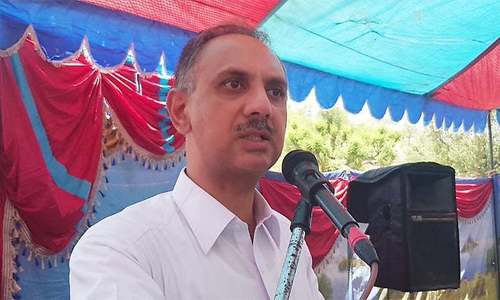ISLAMABAD: Within a couple of days after federal budget announcement, the National Electric Power Regulatory Authority (Nepra) on Friday allowed a uniform increase of Rs1.494 per unit in tariff for all the distribution companies (Discos) of ex-Wapda to recover Rs189.64 billion from all consumers in line with a staff level agreement with the International Monetary Fund (IMF).
“The authority has determined a uniform rate of Rs1.4940/kWh for the allowed amount of quarterly adjustment of Rs189.638bn across each category of consumers of ex-Discos, to be recovered in 15 months period, based on projected sales for 2017-18, after excluding lifeline consumers,” said the regulator in its determination sent to the government for notification.
The government did not immediately notify the tariff adjustment. The government has been repeatedly asking Nepra to spread this additional revenue requirement over 24 months by allowing 95 paisa per unit increase in uniform rate. On the other hand, the distribution companies had been seeking Rs1.87 per unit increase in uniform rate to ensure full recoveries within a fiscal year.
Consumers will pay additional Rs1.49 per unit for 15 months from July 1
Nepra, however, followed a middle path and allowed Rs1.494per unit increase in uniform rate to ensure recovery of Rs189.638bn in 15 months on the ground that higher international oil prices, inflation and currency devaluation could necessitate further price hikes and put consumers to a sudden higher price shock.
Finance Adviser Dr Abdul Hafeez Shaikh and Energy Minister Gohar Ayub Khan have repeatedly said in recent days that they would protect residential consumers having monthly consumption of less than 300 units from any price hike for which they would provide additional subsidy in budget.
That would mean the government would exempt this consumer category from price adjustment instead of notifying the uniform price hike as referred to it by the regulator. Now it has two legal options for implementation of Nepra’s orders. Power Division officials said it could work out a schedule of subsidy for low income consumers (less than 300 units per month) and refer it with revised schedule of tariff (SOT) to Nepra for formal notification.
Another option was that the government itself notify the subsidy rates for different slabs of domestic consumers below 300 units as it had notified special subsidised rates for industrial consumers recently. The official said there was another consideration to pass on slightly higher increases to other consumer categories (other than 300 units of domestic) for which it may require a surcharge to be notified by Nepra. He said all these options would be discussed on Monday before a final decision because new rates would, in any case, become effective on July 1, 2019 under the IMF agreement.
Ayub said a few days ago about Rs98bn additional cost of power would be recovered from consumers at the rate of less than Re1 per unit increase in tariff for consumers having more than 300 units per month. He said the government took a firm stand to protect low-end consumers using less than 300 units per month, with an additional allocation of Rs52bn subsidy in the budget.
The government has made an allocation of Rs191bn for Discos of ex-Wapda and Rs59.5bn for K-Electric, putting the total power sector subsidies at Rs271bn for next fiscal year compared to Rs226bn – slightly lower than current year’s Rs230bn.
Under the Nepra’s determination, Rs189.638bn would flow to the all the Discos of ex-Wapda. Islamabad Electric Supply Company (Iesco) will get an additional revenue of Rs18.4bn, Lahore Electric Supply Company (Lesco) Rs38.2bn, Gujranwala Electric Power Company (Gepco) Rs15.85bn, Faisalabad Electric Supply Company (Fesco) Rs26.8bn, Multan Electirc Power Company (Mepco) Rs34.6bn, Peshawar Electric (Pesco) Rs25bn, Hyderabad Electric (Hesco) Rs12bn, Quetta Electric (Qesco) Rs10.4bn, Sukkur Electric (Sepco) Rs6.5bn and Tesco Rs1.4bn.
Published in Dawn, June 15th, 2019














































